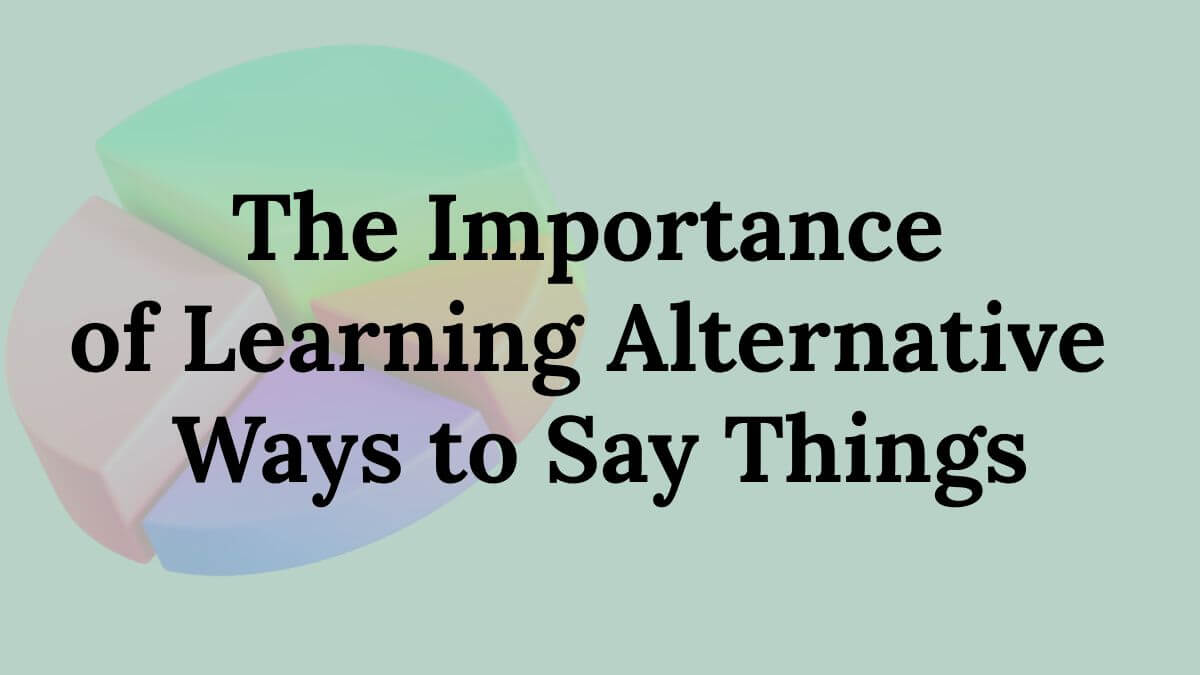In the journey of mastering a language, one of the most valuable skills is learning alternative ways to say the same thing. learning alternative ways to express ideas, we can better communicate and connect.
Understanding the Importance of Learning Alternative expressions helps you adapt to different audiences and contexts. This not only makes communication richer but also enhances your ability to connect with others effectively. Let’s explore why developing this skill is essential and how it can benefit you in various aspects of life.
The Importance of Learning Alternative
Sometimes, the words or phrases we use might not resonate with everyone. By learning alternative ways to express ideas, you ensure your message is understood by diverse audiences. For instance, instead of saying, “I’m tired,” you could say, “I’m feeling drained” or “I’m exhausted.” These variations allow you to choose expressions that fit the context better and add depth to your communication.
Avoiding Repetition
Using the same words repeatedly can make conversations dull and monotonous. Learning synonyms and alternative expressions helps you avoid this trap. For example, instead of repeatedly saying “thank you,” you could use alternatives like “I’m grateful,” “Much appreciated,” or “Cheers.” This keeps your communication fresh and engaging.
Read More:
- 7 Must-Know Greetings & Introductions in Spoken English
- Opposite Words – 200+ for Better English Communication
Adapting to Different Contexts
The way you speak to a friend differs from how you address a colleague or write in formal settings. Knowing alternative ways to say things enables you to adjust your tone and style according to the situation. For example, instead of saying “Let’s fix this issue” in a formal setting, you might say “Let’s resolve this matter.” This flexibility makes you a more versatile communicator.
Improving Creativity and Expression
Learning alternative expressions fosters creativity. It allows you to paint vivid pictures with words and express your thoughts more precisely. For instance, instead of saying “The view was beautiful,” you could say “The view was breathtaking” or “The scenery was awe-inspiring.” Such variations enrich your storytelling and make your speech or writing more compelling.
Boosting Confidence in Communication
When you have a repertoire of words and phrases, you feel more confident in expressing yourself. This is especially helpful in situations where you might otherwise struggle to find the right words. Having alternatives ensures that you’re never at a loss for expression.
Making a Strong Impression
Using diverse language helps you stand out. Whether in a job interview, a presentation, or a casual conversation, your ability to articulate ideas in multiple ways leaves a lasting impression. It shows that you’ve put thought into your words and are skilled in communication.
Conclusion
Learning alternative ways to say things is more than just expanding your vocabulary; it’s about becoming a more effective and adaptable communicator. By practicing this skill, you’ll not only improve your language proficiency but also build stronger connections with the people around you. Start exploring synonyms, idioms, and phrases today, and watch your communication transform!
